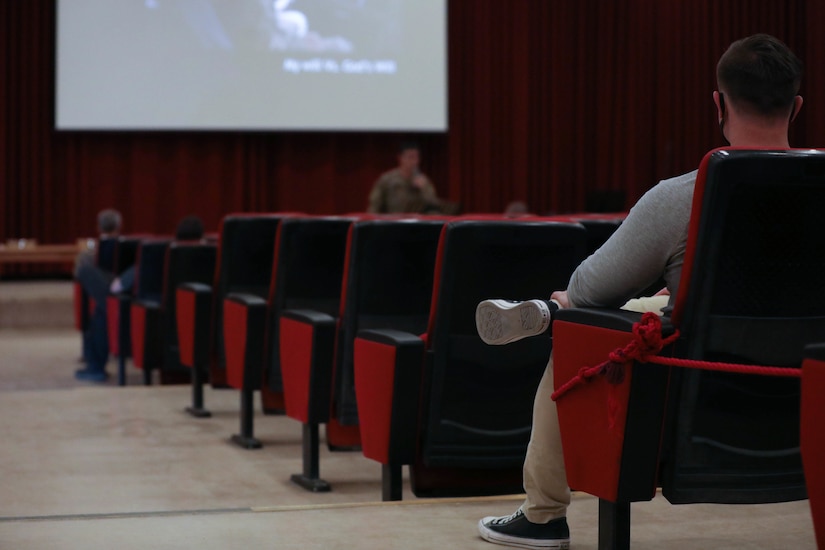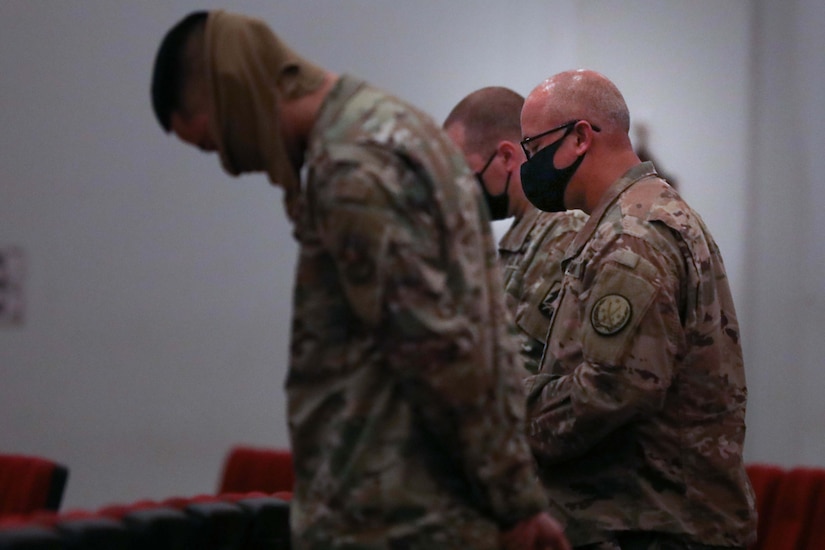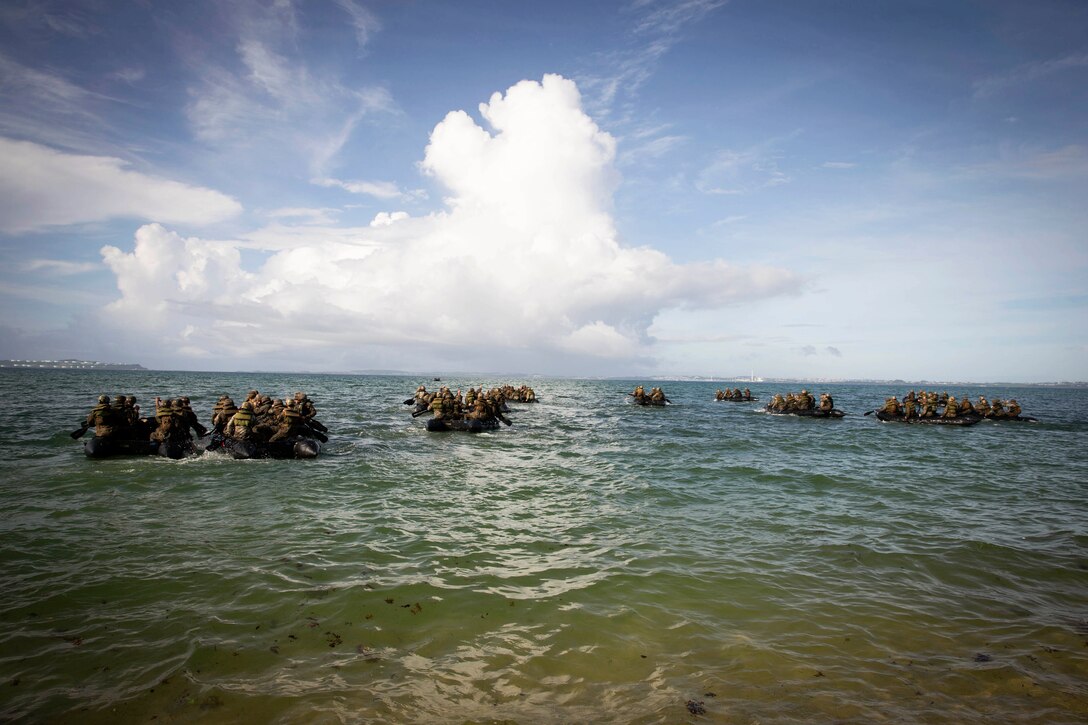The 9th MSC is the most geographically dispersed command in the Army Reserve, and it provides U.S. Indo-Pacific Command with capable forces at key points. The command spans two U.S. states, two U.S. territories, a commonwealth and two foreign countries across seven time zones.
''As a U.S. Army Reserve geographic command designated as a principal ready force unit, and based on our wide array of forces across the Indo-Pacific theater, the 9th MSC prepares for such contingencies year-round,'' said Army Col. Joseph Thomas Jr, the 9th MSC deputy chief of staff for operations, plans and training. ''The 9th MSC was more than ready to answer the call, mobilize, and in some cases, forward-deploy forces in order to execute and command and control validated [Federal Emergency Management Agency] mission assignments and other Theater Joint Force Land Component Command requirements in support of COVID-19 response efforts.''
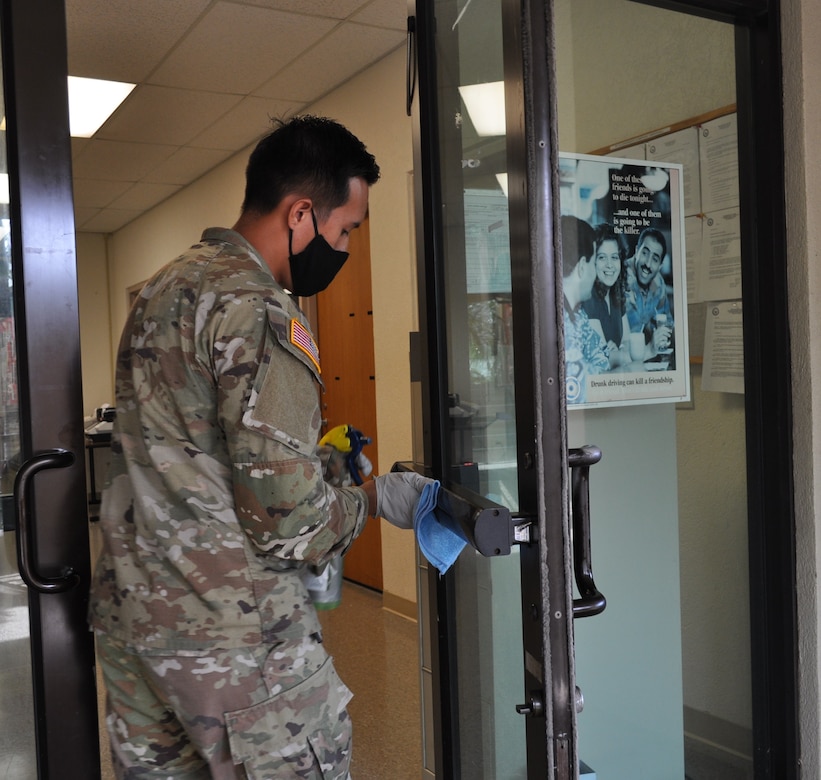 |
The 9th MSC proved their training effective as they seamlessly transitioned from steady-state operations to their efforts in support of civil authorities. It activated its crisis action team, or CAT and immediately began working with the joint force land staff to match capabilities against emerging requirements.
''The CAT was immediately stood up through an initial team huddle of all personal staff and special staff,'' said Army 1st Lt. Lauren Brown, with the COVID-19 fragmentary order team. ''The COVID-19 FRAGO team ensured the information pertaining to [9th MSC] from Army Headquarters, [U.S. Army Pacific] and U.S. Army Hawaii was documented.''
The command quickly organized personnel and supplies to match the need of the mission, people and location, eventually resulting in 376 personnel completing seven FEMA mission assignments and Theater Joint Force Land Component Command and U.S. Army Hawaii taskers.
''Mobilization of 9th MSC forces started with multiple tactical-level units to provide Joint Reception Staging and Onward Movement for other joint and interagency partners, and to operate federal staging areas in American Samoa, Guam, and Saipan,'' Thomas said. ''We then mobilized a team of planners to augment Task Force West in Guam, a team of nurses to provide medical augmentation in the Commonwealth of Northern Mariana Islands, and additional staff personnel from 9th MSC headquarters and its subordinate theater support group to round-out those operational-level staffs and keep pace with planning, reporting, and command and control requirements.''
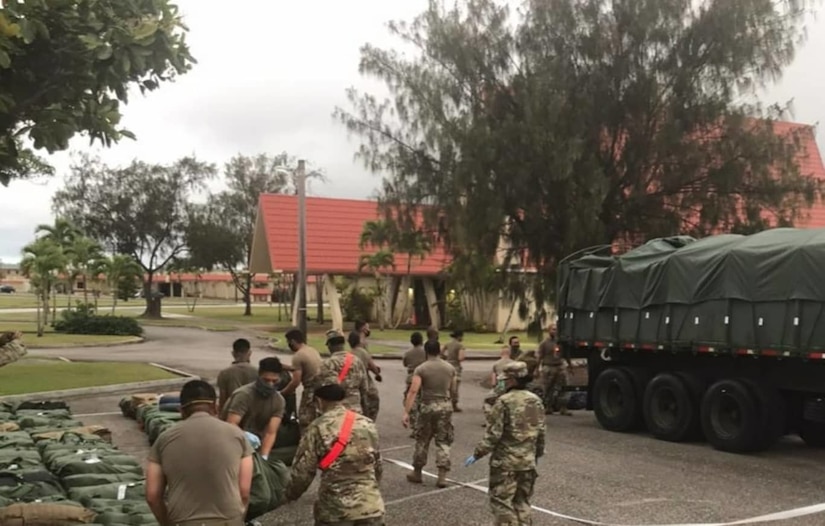
In addition to mobilizing nurses, medical planners and staff personnel, soldiers with the 9th MSC smoved 273 personnel, four pallets, 16 boxes, eight bags of medical equipment and cargo and more than 11,500 units of personal protective equipment into Guam, Saipan and American Samoa. The command exercised emergency preparedness liaison officers in Hawaii, Guam, American Samoa and the Commonwealth of the Northern Marianas Islands.
The 9th MSC also provided personnel to support increased Force Protection/Health Protection Condition measures on installations across U.S. Army Hawaii’s area of operations, and it provided COVID-19 cleaning tand contact tracing teams.
''With COVID-19 being a condition that is new, it did present the challenge of lack of knowledge on how to keep everyone safe while maintaining a workflow,'' Brown said. ''At times it has almost been like building a ship while it is flying.''
Throughout this pandemic, the 9th MSC adapted to these conditions.
''In the end, the 9th MSC enterprise rose to the challenge and completed all requirements while executing in a COVID-19 environment with social distancing, virtual collaboration and facing other unforeseen circumstances and challenges,'' Thomas said.
(Air Force Maj. Melodie Tafao is assigned to the 9th Mission Support Command.)

